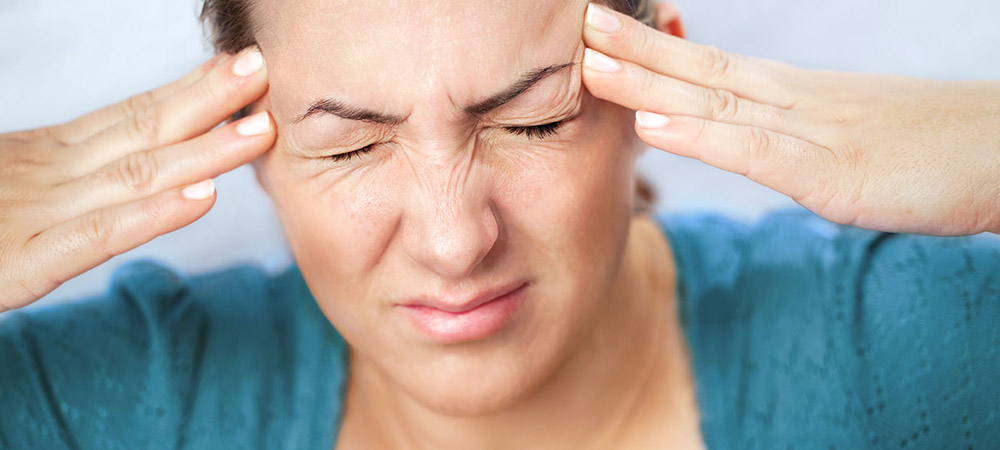Can treating allergies alleviate migraine symptoms?

Migraines can make even your simplest daily tasks extremely difficult and painful. While over-the-counter medications can make your migraines more tolerable, treating your allergies may help to alleviate your migraine symptoms when an underlying allergy is a factor.
Symptoms of migraines can vary from dull to severe and include:
- Headache
- Pain in face and/or neck
- Sensitivity to light and sound
- Distorted vision or flashes of light
- Aura
- Nausea or vomiting
Although there is no definitive cause of migraines, changes in hormones, anxiety, depression, autoimmune diseases, infections, and allergies are often main factors. We spoke with Dr. Demetrios Theodoropoulos, partner and Board Certified in Allergy, Pediatrics and Genetics at Allergy Associates of La Crosse, to discuss how food and environmental allergies may affect a patient’s migraines. Dr. Theodoropoulos has experience using sublingual immunotherapy and the La Crosse Method™ Protocol, for both food and environmental allergies, in helping patients with migraines. According to Dr. Theodoropoulos, patients with migraine have experienced improvement while being treated with immunotherapy to alleviate rhinitis symptoms. Patient history remains extremely important. Treating allergies may not be the only treatment needed to rid migraine symptoms, but, combined with other medications, such as hormone replacement to maintain hormone levels, can provide migraine relief.
Dr. Theodoropoulos noted that food and environmental allergies, in relation to migraines, are separate entities. In other words, while allergic rhinitis is common among patients with migraines, those with food allergy related migraines only make up about three percent of the population of people with migraines.
Food Allergies
Dr. Theodoropoulos found success in treating patients with food allergies, particularly wheat allergy, to alleviate their migraines. He finds sublingual immunotherapy to be, “a very rewarding treatment for some people with food allergies, especially wheat, going from 12-15 migraines a month to one every two or three months.” Although patients with migraines affected by food allergies are few in number, studies have shown them to respond extremely well to treatment.
Airborne or Environmental Allergies
A much higher percentage of patients have different causes for migraines; however, Dr. Theodoropoulos finds a connection between allergies to airborne substances and the sinus-migraine complex. Treating airborne allergies to reduce inflammation can reduce migraines; however, you must also consider hormones, depression, anxiety, autoimmune disease, and more. Dr. Theodoropoulos notes that food allergies are clearer cut than inhalant and environmental allergies. In other words, while treating your environmental allergies, sublingual immunotherapy may need to be combined with other treatments to narrow your chances of getting a migraine.
As a whole, symptom relief was found for patients that treated food and environmental allergies, according to Dr. Theodoropoulos’ study titled, “Allergen-specific sublingual immunotherapy in the treatment of migraines.” The study also revealed that people with frequent migraines were found to have more C-reactive protein (CRP); incidentally, those with higher CRP levels have been found to be at higher risk for stroke younger in life.
Sublingual immunotherapy, combined with lifestyle modification, diet and/or additional medications can be an important component of migraine management.
